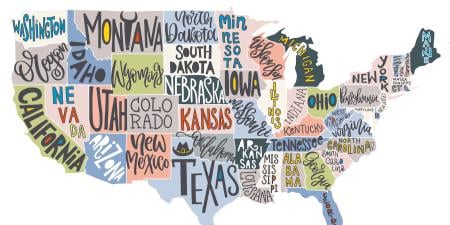During the summer of 2001, I sat on a restaurant patio in Chicago talking with my family about the possibility of a bioterrorist attack in the United States. Our conversation was stimulated by The Hot Zone, the story of an ebola outbreak in a laboratory just outside Washington, DC.1 The disaster scenarios we envisioned then seemed more like science fiction than plausible occurrences. As the events of subsequent months unfolded, however, conversations of this sort became much more grave and less hypothetical.
In public health classes and during an internship with the state Division of Public Health, I was regularly involved in deliberations about terrorism readiness and the demands it places on the already financially strapped public health system. In contrast, terrorism was rarely mentioned during my medical school rotations (with the possible exception of adding inhalational anthrax to the differential diagnosis of mediastinal widening on chest radiographs). While researching the topic for Virtual Mentor, I discovered numerous discussions between medical and public health professionals on the ethical aspects of terrorism preparedness, but it was only by actively seeking these resources that I found them, despite their implications for my future career.
Medical educators are charged with teaching vast amounts of material, and practicing clinicians are burdened with tasks that can make terrorism preparedness, and consideration of its ethical repercussions, a low priority. Discussions of terrorist events are laden with political issues. Some doctors may refrain from preparing for terrorism, viewing it as a form of participation in political activities with which they disagree. Furthermore, some speculation about future terrorist attacks exaggerates the threat of terrorism to public health, and a number of physicians sense the Chicken Little syndrome in these discussions.
As health care professionals, we are accustomed to having access to data when making decisions. When caring for patients, we ask, "How likely is this patient to benefit from this intervention?" or "What is this patient's risk of heart disease?" In contrast, we do not have the data necessary to predict the risk of a terrorist attack. We do not know where or how the next attack in the US will occur, if at all. It is difficult to train for something we know so little about; yet society expects us to be prepared for these potential disasters.
Past experience in the United States conveys the importance of considering the ethical implications of terrorism for medical practice. Although the majority of the medical community agrees with the long-held ethical standard of a doctor's duty to treat, doctors' responses to the HIV epidemic in the US in the 1980s and to a patient with monkeypox in Illinois last year2 demonstrate that some are not willing to carry out this duty. Likewise, despite widespread official agreement in 2001 that doctors should not prescribe prophylactic antibiotics to patients with no exposure to anthrax spores, tens of thousands of these prescriptions were written.3 Why do we say one thing and do another? Are our professional doctrines unrealistic? Does our fear override carefully considered statements about the right thing to do? Or do we simply hold others to a higher standard than that to which we are willing to hold ourselves?
This issue of Virtual Mentor examines the ethical issues surrounding the medical and public health response to terrorism, including preparing for terrorist events, funding preparedness initiatives, conducting research into defensive antidotes, and incorporating preparedness training into medical education. These endeavors have far-reaching consequences for public health and for health care professionals. In preparing our potential response to terrorist situations, we must consider our duties to patients, the best ways to help those in need, and society's obligation to protect first responders. Analysis of past events, such as the attacks of 2001, are instructive, as is the perspective offered by a colleague in Israel who lives and works with the effects of terrorism on a daily basis.
Our involvement in caring for the victims (or perpetrators) of a terrorist attack may require a shift in the way we make patient care decisions. To recognize and approach these ethical dilemmas under pressure during an actual disaster would be unwise. We must anticipate, debate, and prepare for these situations in order to maximize the health of the population and to protect the safety of health care professionals.
The learning objectives for this issue are:
- Understand the physician's obligation to treat, his or her right to personal safety, and the potential conflict between the two.
- Understand society's obligation to minimize the threat of terrorism to physicians and other health responders.
- Recognize the physician's role in minimizing the psychological impact of terrorism on patients.
- Understand the public health implications of terrorism preparedness in the health care community.
- Understand the need for terrorism preparedness among physicians and identify ways to prepare for disaster response.
References
-
Preston R. The Hot Zone. New York, NY: Doubleday; 1995.
-
Reynolds G. Why were doctors afraid to treat Rebecca McLester? New York Times Magazine. April 18, 2004.
- Shaffer D, Armstrong G, Higgins K, et al. Increased US prescription trends associated with the CDC Bacillus anthracis antimicrobial postexposure prophylaxis campaign. Pharmacoepidemiol Drug Safety. 2003;12(3):177-182.



